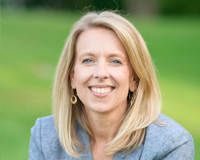Branford Delegation Praises New Education
Funding and Productive Legislation Session
HARTFORD, CT – Today, the Democratic Branford legislative delegation of state Senator Christine Cohen (D-Guilford) and state Representatives Robin Comey (D-Branford) and Sean Scanlon (D-Guilford) praised new education funding for Branford and a productive legislative session.
New Education Funding
In the new state budget passed last week, Branford’s school district will receive $2,483,807 for the 2020 fiscal year and $2,679,195 for the 2021 fiscal year, a funding increase of $390,775 from 2019-2021.
“For years Branford has not received its fair share of funding from Hartford, and recent budget proposals actually eliminated our funding entirely. We are proud to have worked together this session to pass a budget that not only stopped any cuts, but actually increased our overall funding,” delegation members said.
The new state budget also does not include shifting a portion of the teacher pension cost onto the town.
“I’m pleased to see these two outcomes included in the state budget,” said Sen. Cohen. “Fully funding the bipartisan ECS formula for the recommended 10 years will ensure that our students have the necessary resources to thrive inside and outside of the classroom. This will not only benefit Branford schools, but will have a positive effect on people’s wallets. Additionally, preventing the shift of teacher pension costs onto municipalities and local taxpayers, while ensuring that they are still funded by the state, will provide peace of mind to those retired teachers who rely on their earned pensions.”
“Whether it was stopping massive cuts to our funding in 2017 or helping to secure $30 million dollars for the new Walsh Intermediate School, I’ve always tried to do all I can to make sure our schools have the resources they need to give our students the best education possible,” said Rep. Scanlon. “This year’s funding increase is another step in the right direction for our community and I’m proud to have worked to make it happen alongside Senator Cohen and Representative Comey.”
“Education is the foundation of strong and stable communities,” said Rep. Comey. “I’m encouraged to see the budget we just passed prioritized our children by upholding the ECS funding formula, investing in early education, and stabilizing the teacher’s retirement fund. These are the investments we must support if we want all our students to succeed.”
A Lean Budget
The state budget does not increase the sales tax rate, income tax rate, or capital gains tax rate; is under the constitutional spending cap, the bonding cap, the expenditure cap, and the volatility cap; and increases Connecticut’s fund balance – the so-called ‘Rainy Day Fund’ – to over $2.6 billion, the highest it has been in state history. The budget also cuts taxes for seniors with Social Security and pension income, eliminates the annual business entity tax on small businesses, and invests millions of dollars in job creation and workforce development programs.
Local Wins
The Branford legislative delegation led and welcomed the passage of two important public policies this session, both of which the Town has really been a leader on: the creation of a statewide coastal resiliency fund, and a ban on the use of single-use plastic bags beginning in 2021.
In February, Branford created its own $1 million fund to finance efforts to counter the impact of future sea level rise, making it the first town in the state to create a coastal resiliency fund. Building on this success, Sen. Cohen and Reps. Scanlon and Comey helped to introduce and pass Senate Bill 1062, “An Act Authorizing Municipal Climate Change and Coastal Resiliency Reserve Funds.” This important piece of legislation enables Connecticut’s shoreline towns to put systems in place that deal with the impacts of climate change.
In one of the most talked-about pieces of legislation this session, and one that they are particularly proud of, Connecticut also passed a new law that will ban the use of single-use plastic bags, which contribute to pollution in our oceans, forests and parks as well as on our highways and beaches. As of July, 2021, Connecticut stores will no longer provide plastic bags. Towns that have banned them already, or are in the process of banning the single-use bags (like Branford), will remain unaffected provided their local ordinances are at least as restrictive as the state’s policy.
Share this page:
